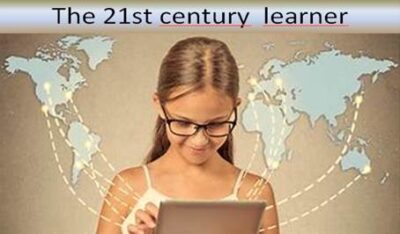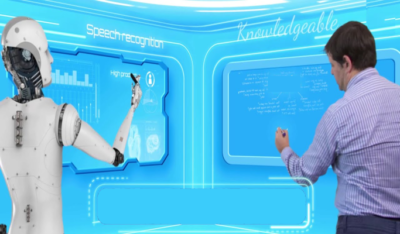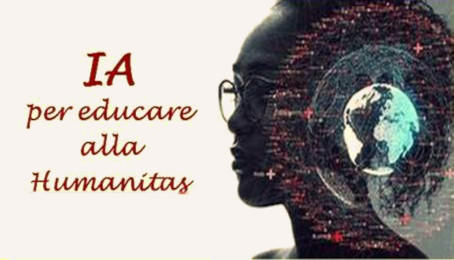ABSTRACTS
3rd SESSION – SATURDAY MORNING, FEBRUARY 24th 2024 8.45 am – 12.05 pm
FROM SOCRATES TO ARTIFICIAL INTELLIGENCE
.

The interactive process between the learner and the world

Learning is an interactive process between the learner and the world. When the world changes, the relationship between the world and the learner changes. Schools should enable this direct connection between the student and the world, taking the developmental phase of the student into consideration.
It is aspirational to live in harmony with oneself, one’s fellow human beings and the planet. Schools and education systems should be able to support this aspiration, even in a complex and changing world. To do so requires us to deeply reflect and reimagine what it means to grow into humanity in our times, and what the purpose of school is in supporting that.
Education has two meta-tasks
Education can be seen to have two meta-tasks: to transfer the learnings and the culture of previous generations to the younger generations; and to support the new generations to be able to create their own paths in the world. The changing world impacts both of these tasks. The first one needs to move towards conceptual understanding, to promote transfer to unfamiliar situations, issues, ideas and contexts. This kind of deep learning connects the concepts of knowledge to the identity of the person.
The second meta-task is becoming more important in a society where some cognitive tasks are done faster and more reliably by AI. The skills connected to the ability to live in harmony and to interact and reach goals together are becoming essential. The urgent need is to concentrate and find ways in which 21st century skills can be integrated in terms of actual classroom instructions and student outcomes.
.
.

Every generation faces the challenge of preparing their young for the world to come, and the concomitant opportunity to contribute to constructing such a world. From micro-level lessons in poetry or geometry to macro-level national curricula on history, educational practice is inscribed in the broader narratives we hold about the kinds of societies in which we live—past, present, and future.
 This presentation will focus on the urgency of making global and intercultural competence for individual and collective flourishing an educational priority in day-to-day classroom practice. Drawing on long-standing work on global competence, Boix-Mansilla will introduce key habits of mind students need to be prepared for the world, i.e. the capacity and disposition to examine world issues, take perspective, relate across differences, and take action, all permeated by values of respect for human dignity and appreciation of diversity. Drawing on extensive empirical analysis of classroom practice, Boix-Mansilla will show how teaching for global competence can take place ubiquitously, across ages, disciplines, and contexts, especially when educators are invited to know their students and communities well, deliberate about what matters most for students to learn and why, gain clarity about the learning they seek, design meaningful transformative learning experiences, and inquire with students and peers about learning progress.
This presentation will focus on the urgency of making global and intercultural competence for individual and collective flourishing an educational priority in day-to-day classroom practice. Drawing on long-standing work on global competence, Boix-Mansilla will introduce key habits of mind students need to be prepared for the world, i.e. the capacity and disposition to examine world issues, take perspective, relate across differences, and take action, all permeated by values of respect for human dignity and appreciation of diversity. Drawing on extensive empirical analysis of classroom practice, Boix-Mansilla will show how teaching for global competence can take place ubiquitously, across ages, disciplines, and contexts, especially when educators are invited to know their students and communities well, deliberate about what matters most for students to learn and why, gain clarity about the learning they seek, design meaningful transformative learning experiences, and inquire with students and peers about learning progress.
.
.
.

A year ago, ChatGPT came out of nowhere and set off an AI boom that swept the world. As a generative AI application, ChatGPT, with its powerful natural language processing capabilities, can complete a variety of complex tasks such as question answering, creating poetry, writing code, etc. It supports information processing of multiple modules, such as text, image, audio, video, etc., which enables AI to generate endless content for the first time.
 In this context, the future of education and that of the classroom will change, and the role of teachers and professional requirements will also change. The collaboration between human teachers and computer teachers will be the new normal of future education. Without doubt, the role of the “human teacher” in the context of education digitization has become more obvious and more important. Teachers should focus on guiding students’ emotions, attitudes and values, and gradually become knowledge producers, facilitators of learning and shepherd of growth. Future teachers need to learn to live with the artificial intelligence, so that the “computer teacher” can for my use. In addition, future teachers need to be more interactive and empathetic, turning education into “art”.
In this context, the future of education and that of the classroom will change, and the role of teachers and professional requirements will also change. The collaboration between human teachers and computer teachers will be the new normal of future education. Without doubt, the role of the “human teacher” in the context of education digitization has become more obvious and more important. Teachers should focus on guiding students’ emotions, attitudes and values, and gradually become knowledge producers, facilitators of learning and shepherd of growth. Future teachers need to learn to live with the artificial intelligence, so that the “computer teacher” can for my use. In addition, future teachers need to be more interactive and empathetic, turning education into “art”.
.
.

Globalisation and digitalisation have connected people, cities, countries and continents in ways that vastly increase our individual and collective potential. But the same forces have also made the world more volatile, more complex, more uncertain and more ambiguous. The kind of things that are easy to teach and test have become easy to digitize and automate. For the last centuries, education got side-tracked to mass-producing routine knowledge and skills that were high in demand in an economy that couldn’t yet draw on advanced technology.
 The advent of artificial intelligence now enables and pushes us to refocus education on the core of the human experience: The passion and motivation that drive us to act, shaped by our identities and our sense of belonging, which in turn shape agency, co-agency and collective agency, but also the purpose that gives direction to our agency to make a positive difference in this world. Building these capabilities will make the role of teachers and school leaders far more central.
The advent of artificial intelligence now enables and pushes us to refocus education on the core of the human experience: The passion and motivation that drive us to act, shaped by our identities and our sense of belonging, which in turn shape agency, co-agency and collective agency, but also the purpose that gives direction to our agency to make a positive difference in this world. Building these capabilities will make the role of teachers and school leaders far more central.
.
.

When we plan education, there is always a right balance to be established between the preservation of a common heritage and the preparation for the present and future challenges. Anticipation is a desired feature of this policy design, but it is often the case that education systems respond too slowly.

Schools face old and new challenges. Providing quality education and access for all is the basic goal of the systems. However, access is not enough if it is not discussed together with success. The sheer concept of quality education needs qualification – the global commitment to the construction of inclusive education systems provides a cultural paradigmatic shift. If education is not inclusive, can it be said to be have quality? At the same time, a new relation with knowledge and information is evolving at a very fast pace, drawing our attention to the need for new centralities in the definition of learning outcomes.
 In Portugal, a curriculum redesign was developed on the basis of three complementary pillars:
In Portugal, a curriculum redesign was developed on the basis of three complementary pillars:
- a student profile encompassing knowledge, competences, skills, attitudes and values,
- a legal regime for inclusive education and
- a national strategy for citizenship education.
In my presentation, I will argue for the necessary interaction between these three pillars, and its consequences for the way the problem of curriculum overload must be dealt with. In Portugal, together with the teacher professional societies, it was possible to identify essential learnings for all subjects with the common goal of freeing up the space and time for deep learning, interdisciplinary work, diverse methodologies and inclusion..
.



